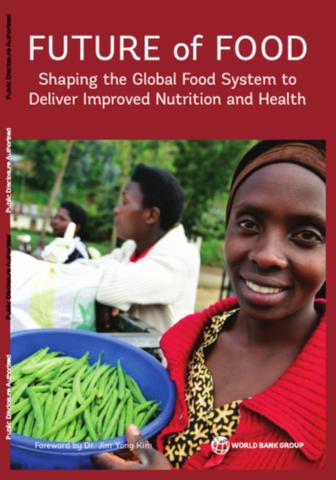Future of food: shaping the global food system to deliver improved nutrition and health
 Despite significant progress the world continues to bear a triple burden of malnutrition. These three burdens are related, but distinctly different, problems: energy deficiencies (hunger), micronutrient deficiencies (hidden hunger), and excessive net energy intake and unhealthy diets overweight/obesity). Despite significant progress, 795 million people still are not getting the minimum dietary energy needs. The majority of these people are in Sub-Saharan Africa, in which 1 in 4 people are hungry; and in South Asia, in which 1 in 6 people are hungry. More than 2 billion people are deficient in key vitamins and minerals that are necessary for growth, development, and disease prevention. Globally, over 2 billion people are overweight or obese, two-thirds of whom live in developing countries. This issue clearly is not just a developed country problem. Energy and micronutrient deficiency are contributors to the 165 million children under 5 who are stunted and cannot grow to achieve their full potential. Globally, this number is equivalent to approximately 1 in 4 children under 5 years, with an even more concentrated situation in Sub-Saharan Africa and South Asia (1 in 3 children). Arguably child stunting is one of the biggest development challenges. If not addressed it will profoundly undermine our ability to end poverty and promote shared prosperity.
Despite significant progress the world continues to bear a triple burden of malnutrition. These three burdens are related, but distinctly different, problems: energy deficiencies (hunger), micronutrient deficiencies (hidden hunger), and excessive net energy intake and unhealthy diets overweight/obesity). Despite significant progress, 795 million people still are not getting the minimum dietary energy needs. The majority of these people are in Sub-Saharan Africa, in which 1 in 4 people are hungry; and in South Asia, in which 1 in 6 people are hungry. More than 2 billion people are deficient in key vitamins and minerals that are necessary for growth, development, and disease prevention. Globally, over 2 billion people are overweight or obese, two-thirds of whom live in developing countries. This issue clearly is not just a developed country problem. Energy and micronutrient deficiency are contributors to the 165 million children under 5 who are stunted and cannot grow to achieve their full potential. Globally, this number is equivalent to approximately 1 in 4 children under 5 years, with an even more concentrated situation in Sub-Saharan Africa and South Asia (1 in 3 children). Arguably child stunting is one of the biggest development challenges. If not addressed it will profoundly undermine our ability to end poverty and promote shared prosperity.
